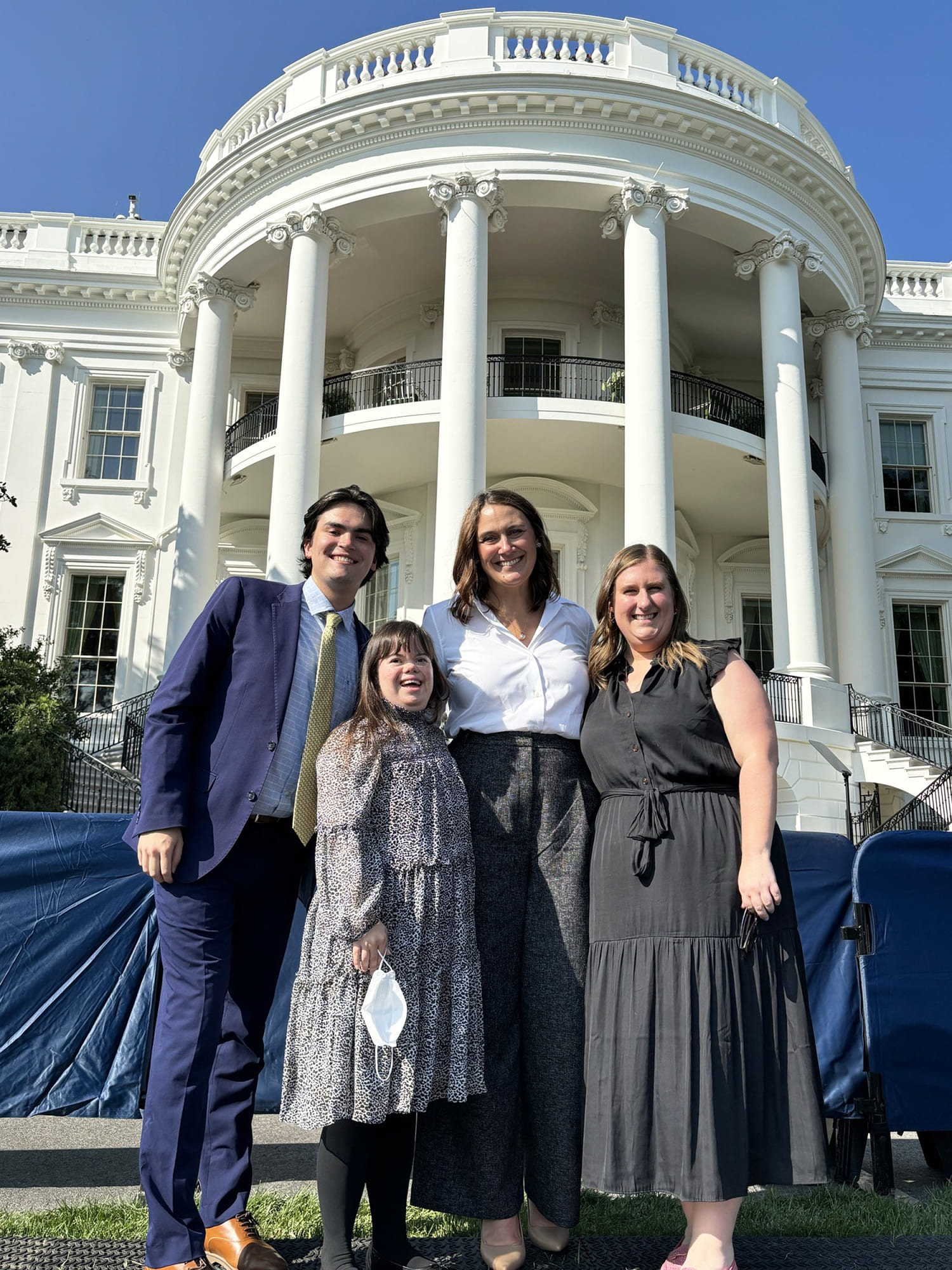Charlotte Woodward was born with a congenital heart condition, and as a child, she underwent four open heart surgeries. “Everyone thought that my fourth one would be my last,” Woodward, 33, a programs associate with the National Down Syndrome Society, tells TODAY.com.
“It was not the last because ...

my heart really struggled to keep up with the rest of my body, and as a result, I (had) low cardiac output, syncope, which means having a fainting spell.” Doctors worried about Woodward’s health and knew that something needed to be done. The only option they had not tried was a heart transplant.
Woodward also has Down syndrome, and people with disabilities are more likely to be denied access to organ transplants than the general population, . Luckily, her cardiologist didn’t think having Down syndrome should keep her off the transplant list. “I’m so very, very grateful for my doctors who looked beyond my Down syndrome diagnosis and saw me for who I am and my abilities,” she says.
“I ultimately got my transplant on January 30, 2012.” Many other children with Down syndrome, however, have lost their lives because of not receiving the same opportunity as Woodward. In 2021, Zion Sarmiento, an infant with Down syndrome in Florida, underwent five open heart surgeries in less than two weeks, his parents wrote on .
He needed a heart transplant, but three hospitals declined to perform it even though his other organs were healthy, and he had brain activity. After repeatedly being denied a heart transplant, Zion died in October of 2021, less than four months after he was born. There's little research available on how often people with Down syndrome in need of transplants are denied access.
But it's widespread enough that the National Council on Disability published on the phenomenon. According to the report, a 2004 survey found just 52% of people with disabilities who requested to be evaluated for an organ transplant were actually referred to a relevant specialist, and 35% of those who were suggested to receive a transplant never got an evaluation. A 2008 survey of pediatric transplant centers found that 43% considered an intellectual disability a "contraindication" for a transplant, a term for a medical intervention that isn't advisable due to an existing condition or other aspect of the patient's health.
A transplant center needs to agree to treat a patient in order for them to be added to the national waiting list. A 2022 paper in the simply states that "transplantation in patients with (Down syndrome) is rarely reported," even though about half of babies with Down syndrome are born with a congenital heart defect. One of the main reasons that people with Down syndrome are discriminated against for organ transplants is the assumption that they won't have as good of an outcome as someone without Down syndrome.
But research finds the opposite. According to the 2022 study, 26 pediatric patients with Down syndrome who received heart transplants between 1992 and 2020 had similar rates of survival and post-operative complications to their peers without Down syndrome. In the 2019 report, the National Council on Disability wrote: “These denials are frequently based on discriminatory assumptions that the lives of people with disabilities are of poorer quality than those of people without disabilities, and on misperceptions about the ability of people with disabilities to comply with postoperative care.
” Woodward agrees that “our biases and subjective judgments about the value of a life and disability, as well as assumptions about their quality of life and the misconception about the ability to apply with post-operative care” contribute to the discrimination. “I was a success story,” she adds. “Not many people with Down syndrome or even those with other intellectual and developmental disabilities get such a life-saving procedure as I did.
” Woodward is the namesake of federal legislation that would prevent discrimination when it comes to organ transplantation. It’s already a violation of the Americans with Disabilities Act not to provide treatment to someone because they have a disability, but many health care providers and transplant centers don’t realize this also applies to organ transplants, per the 2019 report. So the new legislation would build on the ADA protection, .
House Representatives Kat Cammack and Debbie Dingell reintroduced the Charlotte Woodward Organ Transplant Discrimination Act in February 2025, according to the . If the legislation passes, transplant centers could not deny people with Down syndrome organ transplants based on their disability. Even though Woodward ultimately received her transplant, she points out that her cardiologist had to advocate for her.
“He really had to go to bat for me because he knew that there might be institutional failures and discrimination,” she says. “The good thing is once the transplant team met me, they ..
. not only looked beyond my disability diagnosis but also recognized my inherent (value) and, as a result of that, they believed that I deserved the opportunity to have a life-saving heart transplant.” Woodward feels optimistic that the bill might become a law and prevent other people with disabilities from being denied transplants.
“We will never know the many stories of those with disabilities that have been denied such access and have died as a result, their lives taken too soon due to discrimination,” she says. Meghan Holohan is a digital health reporter for TODAY.com and covers patient-centered stories, women’s health, disability and rare diseases.
.
Health

Her life was saved by a heart transplant. Many others with Down syndrome don't get the same chance

People with Down syndrome are denied organ transplants. Charlotte Woodward received one and she wants others to have the same options as her.















